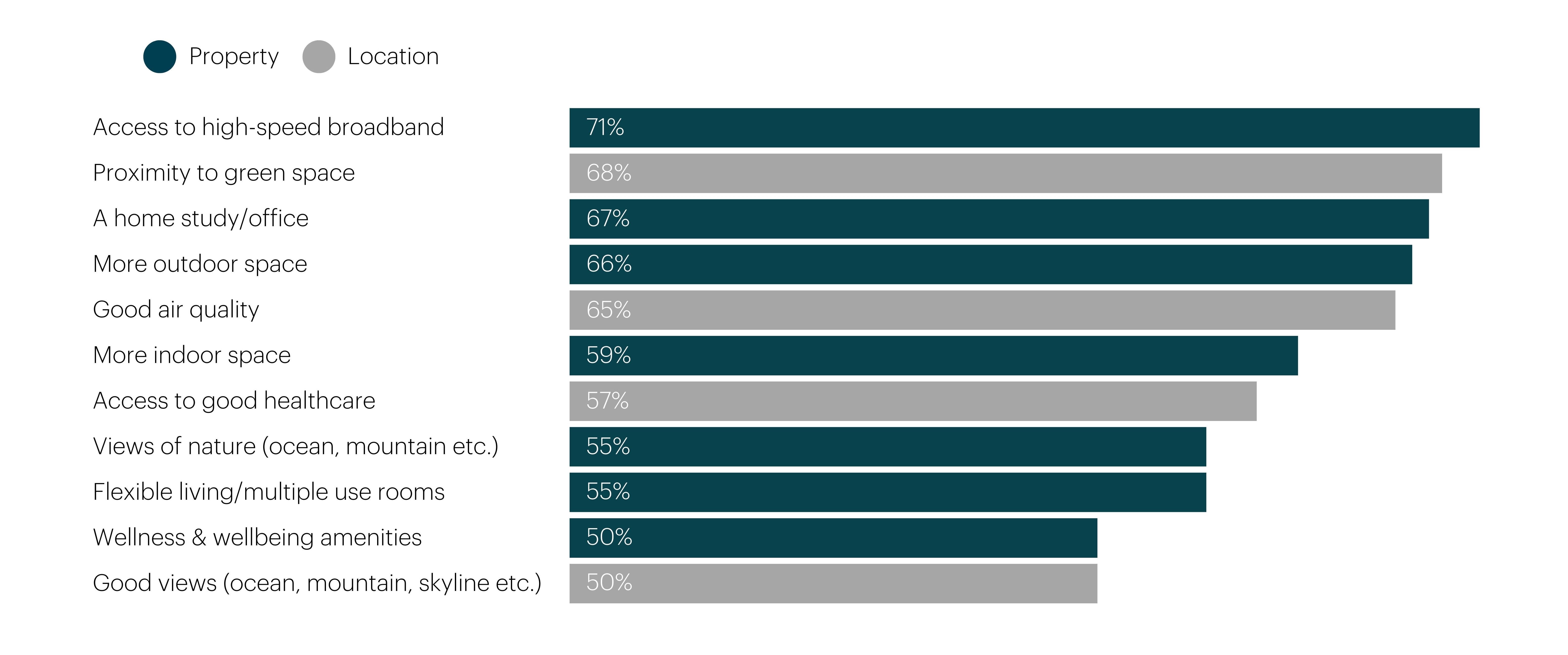Private Clients
Helping you discover more with your time through bespoke wealth management

Some of the products listed on our website may not be available in certain regions due to regulatory reasons. Please contact our local offices to speak to a qualified financial advisor.
By continuing to the website I accept the cookie policy
Friday, June 03, 2022
Written By
Intergenerational Wealth Transfer | Legacy Planning | Investing | Lifestyle
For the first time in what has felt like a lifetime, summer comes with more opportunities to travel. Whether for an indulgent holiday or the more preferred work from “home”, the post-COVID demand for luxury vacation homes have surged among the affluent.
Now more than ever, global citizens understand how valuable it is to have real estate in multiple countries. Whether for the comforts it provides whilst travelling abroad, the connection it offers to the many places considered ‘home’, or the opportunity of adding to a portfolio, the benefits of holiday homes are becoming increasingly apparent.
The pandemic undoubtedly changed our collective perspective on travel, lifestyle, and work. According to one luxury resort developer in Singapore, it was a turning point for HNWIs, with many looking for wholesome properties and locations that reconnect them to nature and wellness.

Globetrender’s Elite Travel Trend sees a future of luxury tourism through ‘ultra-itineraries’ – holidays that enrich the mind, body, and soul. It’s an unsurprising trend given that the pandemic has given individuals plenty of time for self-reflection and discovery.
But while interest in homes around the world grows, there are necessary considerations to keep in mind so you spend less time worrying about the technicality of owning multiple homes, and more time making memories that last a lifetime.
There is a whole geographical spectrum to consider when looking for your home-away-from-home. Whether you prefer clear waters and tropical climates or a homely retreat in the alpine mountains.
But even though holiday homes are idyllic in thought, they do require financial thought before purchase – particularly when it comes to high-value purchases.
Europe is one of the leading destinations for holiday homes and – if we take Europe alone as an example – it shows that financing must be considered.
A holiday home in France or Monaco requires an income of at least €250,000 per year and a net worth of €2 million. Additionally, banks would require that borrowers put assets equalling at least 25% of the loan value under management with the bank.
Alternatively, in Spain or Portugal, having assets with a bank isn’t a fixed requirement, but getting a dry mortgage still requires you to show you are in a good financial position with a solid income.
These differences highlight that thorough research must be conducted in accordance with the jurisdiction the home is in.
Even more, these luxury properties come with their own tax obligations, which will differ depending on the jurisdictions in which the home is situated.
For instance, France is one of the most common European holiday home destinations for HNW individuals. Between 80,000 to 90,000 French homes are owned by UK nationals alone, and it’s no surprise given the picturesque beauty of the French Alps or the tranquil sophistication of Côte d’Azur.
Non-residents with property in France are still liable to French income tax, which currently sits at 20%. More specifically, if your rental income is less than €27,519 (after allowances and costs) you are taxed at 20%, while anything above this is liable to 30%.
You might also find yourself liable to French wealth tax, which is applicable on real estate assets of non-residents. Tiers range from 0.50% (on properties worth €800,000 to €1.3 million) to 1.5% (on those worth €10 million and above).
As each individual circumstance differs depending on jurisdiction, personal situation, and property, none of this is to be taken as your professional tax advice; but only to show that additional homes require additional considerations if you want to ensure that you are protected or aware of all tax obligations.
In 2021, the global vacation rental market was valued at USD74.64 billion and is expected to grow at a Compound Annual Growth Rate of 5.3% from 2022 to 2030. With this information, it is no surprise that HNWIs with multiple properties are hoping to take advantage of the benefits that additional homes might provide.
Speaking to Spear’s Magazine, the managing director of Sphere Estates noted that more HNW clients are starting to value holiday homes for their income generation and convenience, more than the “hassle” involved in merely upkeeping a property abroad.
One example he shares is a British businessman who already owns properties in the UK, St. Tropez, Verbier and Tenerife, but is now looking for something in the Maldives. Since the property would only be used for a maximum of eight weeks a year, he is essentially looking for something he can rent out.
Property portfolios such as these are complex. Balancing their tax efficiency and upkeep with the benefits that can be added to you takes careful consideration and requires specialised, bespoke wealth management knowledge. Nonetheless, when it’s all done, it can provide plentiful rewards.
For better web experience, please use the website in portrait mode
